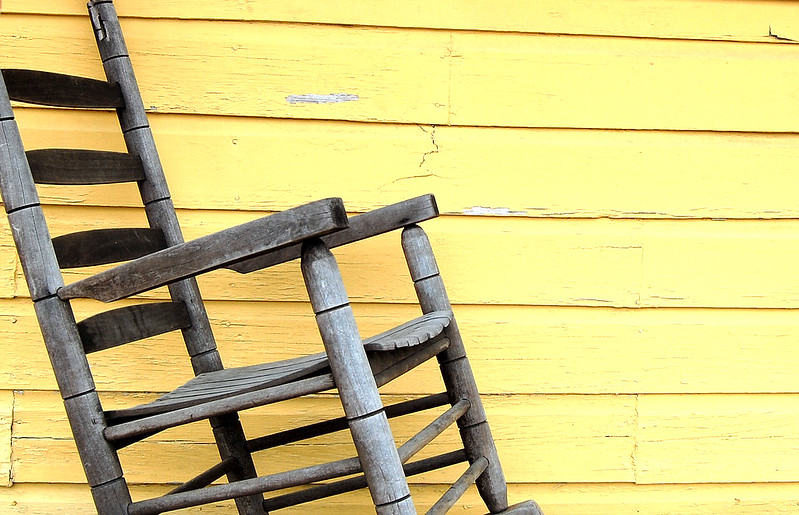I fell in love and became like those men in Plato’s Republic
who heard music for the first time and began singing,
and sang beyond reason, beyond dinner, beyond sleep,
and even died without noticing it, without wavering.
Thank you for ferocity, for our being beyond reason,
for the incendiary marvel of us. It was a gift,
even if, after love, I became a wooden chair
with its cane seat broken through; something someone might
place at the edge of their driveway and tape a handwritten sign to it
saying free or please take me.
Thank you. Someone always believes they can make use.
The flower-printed sofas, the particle-board desks—
they’re all taken by the evening commute, even in a town
thinned out by rain, even on a sidewalk barely visible
beneath a weak-bulbed light.
Keith Leonard is the author of the poetry collection Ramshackle Ode. His poems have appeared recently or are forthcoming in New England Review, Ploughshares, and The Believer.




